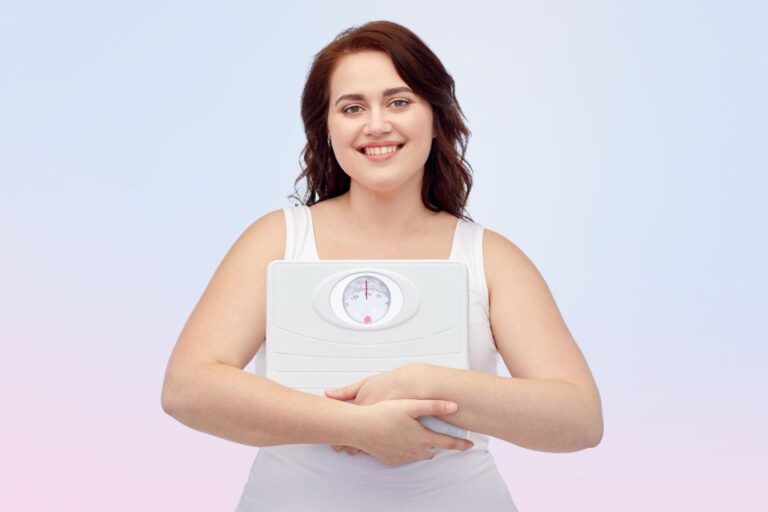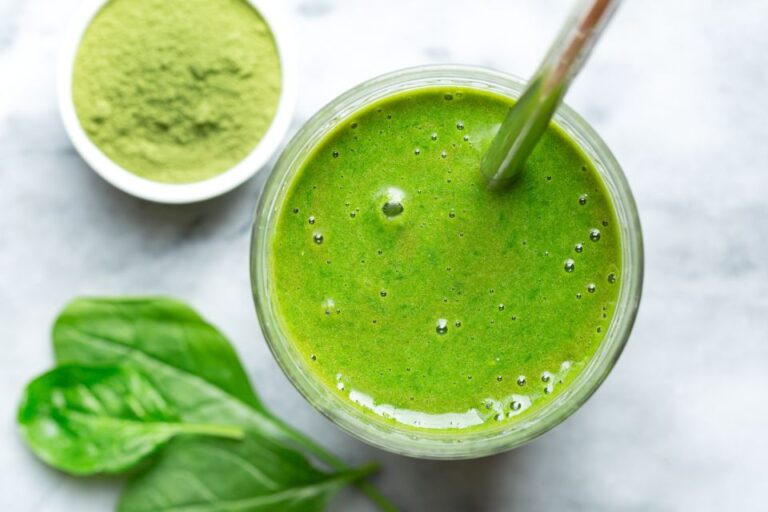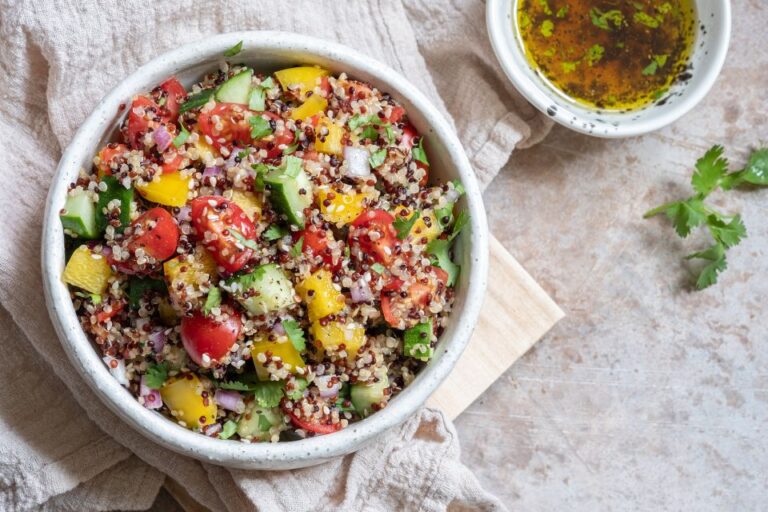When Is the Best Time to Eat Carbs?
If you’re confused about carbs, you’re not alone. The health and wellness world is rife with conflicting recommendations in regard to the best time to eat carbs (and whether you should eat them at all!).
This advice varies from year to year and shifts depending on whether you’re trying to gain muscle or lose fat. It’s anything but conclusive. Many of us latched onto one of the most popular of these claims, ‘don’t eat carbs after dark’; but is this principle as significant as we’ve been led to believe?
Research on nutrient timing (eating specific nutrients at specific times, often in detailed quantities) is a rapidly growing field. However, as better and more in-depth studies develop, the confusion is disintegrating. While some of this research is directed towards athletes, there are takeaways for everyone.
In this article, we’ve waded through the myths and created a simple guide to eating carbs confidently.
Carbs: Everyone’s Favorite Macronutrient
Rice, fruit, potatoes, and cake – carbohydrates are truly, along with protein and fat, one of the three major building blocks of the human diet known as macronutrients. (1) Carbs are comforting, filling, and energizing.
While you could theoretically survive without carbs, they’re an important source of energy and fiber, sustaining the central nervous system and promoting healthy digestion. (2) Carbs can also help improve muscle recovery and athletic performance (although it’s important to note that most of this research is done on athletes). (3)
Carb consumption is often thought to lead to weight gain, but that isn’t always the case. This has led many people to follow new regimes like the keto or low-carb diet.
Another popular route is the only “healthy carbs” approach – which consists of consuming whole-food carb sources that are rich in fiber and micronutrients (fruit, veggies, whole grains, and beans) and avoiding “bad carbs” (usually refined carbohydrates like bread, candy, soda, and breakfast cereals).
Whether you love carbs or avoid them, it’s important to have a well-rounded, research-based perspective on this vital macronutrient. The most important thing to know is that if you enjoy consuming carbs and feel best when you do so, they can be a part of an effective weight loss diet. (4)
What Is Carb Timing?
Carb timing is an offshoot of nutrient timing. It’s the idea that eating carbs only at certain times – at breakfast or after workouts, for example – can improve workout recovery, promote weight loss, or help you gain muscle mass. Many popular diets include some variation on the principle of carb timing.
One popular theory posited that eating carbs in the evening – when you’re likely sitting around and not “burning fat” – contributes to weight gain. While some studies have shown this to be true, just as many have demonstrated the opposite! (5) The logical conclusion is that the best time to eat carbs may vary from person to person, depending primarily on body chemistry. (6)
What Is the Best Time to Eat Carbs to Lose Weight?
There’s no specific best time to eat carbs. We know that carbs can be a part of an effective diet and that the best time to eat them will be different for different people. Human beings are complex organisms living in complex environments. The best time for YOU to eat carbs will vary according to your answers to the following questions:
Do You Eat the Right Amount of Calories Each Day?
How much you eat (and, to a slightly lesser extent, the macronutrient distribution of what you eat) plays a much, much bigger role in weight loss than carbohydrate timing. If you’re eating an appropriate amount of calories and protein for your weight loss goals, you can divide up your meals in almost any fashion and achieve largely the same results.
It takes experimentation to figure out the right amount of food for your body, and you should always consult with a health professional to figure out your individual nutritional needs.
This simple equation may give you a good place to start: multiply your goal weight x 12 to generate a daily calorie budget (i.e. 150 x 12 = 1800 calories/day). Multiply your goal weight x .8 – 1 to generate a daily protein budget (i.e. 150 x .8-1 = 120-150 grams protein/day). (7)
What’s important is creating a meal schedule that allows you to consistently adhere to these numbers and distribute your macronutrients in a way that feels satisfying and reasonable.
When Are You Naturally Hungry?
Your hunger cues correspond to your body’s circadian rhythm. (8) If you improve your sleep habits, your hunger levels and cravings will improve.
When you’re able to prepare and eat, food is related to your work schedule, too, of course. Build your personalized healthy diet around when you’re naturally hungry as much as possible. This will increase the likelihood that you’ll stick with it, which is the biggest predictor of weight loss. (9)
Do You Get Enough Protein?
We touched on this in the first point above, but it’s important to reiterate: If you eat an appropriate amount of calories and protein, you can prioritize carbs or fat as you prefer.
You can also consume some “bad carbs” (sweets, chips, white bread, etc.) without completely derailing your goals. Get your protein and calories in order, and then prioritize eating in a way that feels good, satisfies your cravings, and helps you stay on track.
Is Your Diet Rich in Fiber and Micronutrients?
Fiber and micronutrients are crucial for digestion and overall health. Fruits and vegetables, whole grains, legumes, spices, and herbs are great sources.
Shoot for at least 20-40 grams of fiber/day. (10) If you consume a variety of colorful produce each day and emphasize whole grains (while not demonizing refined grains!), your micronutrient consumption will fall into place on its own.
Do You Feel Good?
This might be the most important question of all! Do you have consistent energy levels? Is your gut health good? Is your food nourishing and tasty? Are you performing well in your workouts? Are you sleeping well? The answers to these questions will help you understand whether your nutrient and meal timing are effective or not.
If you figure out how to eat the right amount of calories and protein, get sufficient fiber and macronutrients, satisfy your hunger to the best of your ability, and feel good for the most part, you’ll begin to see that carb timing falls into a natural rhythm on its own.
This process takes experimentation, but the results are much more effective and sustainable than an extreme ‘one-size-fits-all’ diet.
So, When Should You Eat Carbs?
Consume carbohydrates when they feel natural to you and in accordance with your overall goals. If you’re hitting the gym, carbs before or after your workout will likely help you feel and perform your best.
If you’re trying to lose weight and are unable to exercise currently, focus on mostly whole-food carb sources and be aware of a tendency to graze on refined carbs in the evening (this common habit can derail weight loss by adding unnecessary calories to your diet).
If you have special requirements or preexisting conditions, follow your doctor’s advice on carb consumption.
References
1. Macronutrients | Food and Nutrition Information Center | NAL | USDA. (n.d.). Retrieved April 28, 2020, from https://www.nal.usda.gov/fnic/macronutrients
2. Eric C Westman, Is dietary carbohydrate essential for human nutrition?, The American Journal of Clinical Nutrition, Volume 75, Issue 5, May 2002, Pages 951–953, https://doi.org/10.1093/ajcn/75.5.951a
3. International society of sports nutrition position stand: nutrient timing. (2020, April 28). Retrieved April 28, 2020, from https://www.ncbi.nlm.nih.gov/pmc/articles/PMC5596471/
4. A High-Carbohydrate, High-Fiber, Low-Fat Diet Results in Weight Loss among Adults at High Risk of Type 2 Diabetes. (2017, November 1). Retrieved April 28, 2020, from https://www.ncbi.nlm.nih.gov/pmc/articles/PMC5657137/
5. Sofer, S., Eliraz, A., Kaplan, S., Voet, H., Fink, G., Kima, T. and Madar, Z. (2011), Greater Weight Loss and Hormonal Changes After 6 Months Diet With Carbohydrates Eaten Mostly at Dinner. Obesity, 19: 2006-2014. doi:10.1038/oby.2011.48
6. St. Pierre, M. B. S. (2018, February 6). Is nutrient timing dead? And does “when” you eat really matter? Retrieved April 28, 2020, from https://www.precisionnutrition.com/nutrient-timing
7. Syatt, J. (2019, July 5). Training and Nutrition for Fat Loss: The Ultimate Fat Loss Guide. Retrieved April 28, 2020, from https://www.syattfitness.com/fat-loss/training-nutrition-fat-loss-ultimate-fat-loss-guide/
8. The Internal Circadian Clock Increases Hunger and Appetite in the Evening Independent of Food Intake and Other Behaviors. (2013, March 1). Retrieved April 28, 2020, from https://www.ncbi.nlm.nih.gov/pmc/articles/PMC3655529/
9. Feig, E.H. and Lowe, M.R. (2017), Variability in Weight Change Early in Behavioral Weight Loss Treatment: Theoretical and Clinical Implications. Obesity, 25: 1509-1515. doi:10.1002/oby.21925
10. Smiley, B. (2017, October 11). How Much Fiber Should I Eat Per Day? Retrieved April 28, 2020, from https://www.healthline.com/health/food-nutrition/how-much-fiber-per-day







